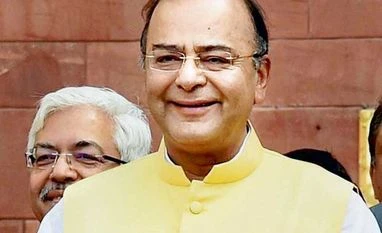Individual taxpayers got five big presents. Personal income-tax exemption limits were raised by Rs 50,000; the income-tax deduction for interest on housing loans was increased by Rs 50,000; the investment limit for the deduction under Section 80C of the Income-Tax Act was raised by Rs 50,000; the annual ceiling in the public provident fund scheme was raised by Rs 50,000; and the duty-free baggage allowance for Indians returning from abroad was raised from Rs 35,000 to Rs 45,000.
Foreign investors had their fears allayed, and market participants were given a few incentives. Jaitley assured investors the government would not "ordinarily bring about any change retrospectively which creates a fresh liability", while asserting the sovereign right to write retrospective legislation. Various amendments to problematic transfer-pricing rules, to bring those in line with international best practices were also proposed. Foreign fund managers were told their income would be treated as capital gains for tax purposes, and not business income. And, the permissible foreign direct investment (FDI) level in defence and insurance was proposed to be raised to 49 per cent.
Manufacturing, currently stalled but a possible source of much-needed jobs, was the focus of a series of incentives. A tax incentive for large investments was introduced in the previous Budget was expanded in scope, and its term lengthened. Some imported inputs had their Customs duties cut; some final products - many electronic goods, in particular - had their Customs duties increased, in a protectionist move.
One highlight was a big public-sector disinvestment initiative, expected to fetch the government an estimated Rs 63,425 crore in the current year, up 145 per cent over Rs 25,841 crore collected last year. In addition, a 24 per cent increase in other non-tax revenue to Rs 99,000 crore was projected, suggesting the government would be raising user fees on roads, bridges, and so on.
The Budget contained some major reformist endeavours, though these were not linked together in Jaitley's speech. The scheme of "advance rulings" for indirect taxes, currently available only to foreign companies, will be extended to domestic ones, too, as suggested by the Tax Administration Reforms Commission. A commitment to the goods and services tax (GST) and the direct taxes code, was re-emphasised - though there was no timeline for GST rollout. The Apprentice Act will be amended to make it more responsive to the needs of job seekers and the companies that might employ them - but there was no similar promise to amend other labour laws.
Jaitley said the recapitalisation of burdened public-sector banks - also subject soon to Basel-III capital norms - would cost at least Rs 2.4 lakh crore by 2018. However, instead of allotting money, he said the government would dilute its equity, while not giving up control. Banks were also allowed to raise money to lend to infra projects that would be free of the cash reserve ratio, statutory liquidity ratio and priority-sector requirements that other bank money is subject to. Finally, there was the promise of a series of macro-level reforms. The Financial Code suggested by the Financial Sector Legislative Reforms Commission got a mention, as well as the Urjit Patel Committee's recommendation of a modern monetary policy framework for the Reserve Bank of India.
However, there were some major misses for those expecting a big-bang Budget. For one, there was little movement on subsidy reform. Petroleum subsidies were about 25 per cent less than earlier promised, and food subsidies about 25 per cent more - but the overall figure did not change. There was a promise to eventually formulate a new urea policy, but no timeline. An Expenditure Management Commission was promised "to look into various aspects of expenditure reform". It will produce an interim report this financial year. Presumably, subsidy control will have to wait until Budget 2015-16 next February.
)